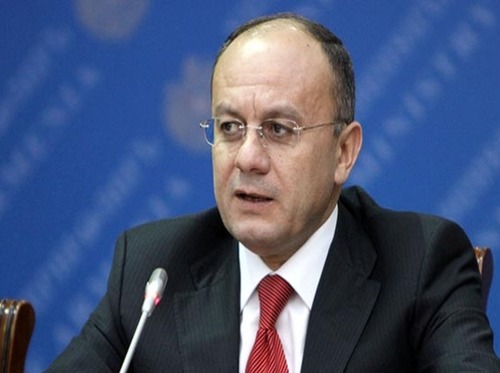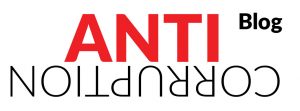Why did the victim refuse?
The investigation of criminal case N63203516 was quashed.
According to the observations of the human rights organization, “Money laundering and a number of other crimes are not addressed. This in itself includes corruption risks, and that is proved by deliberate concealment of a number of crimes by officers of the Investigating Department. Particularly, officers of the Investigation Department do not intentionally investigate the following offenses which are presented below.”
Three years ago, Marina Poghosyan, the president of the “Veles” human rights organization, that acts against usurers, shadow and corruption deals of officials holding state posts, told the “Aravot” daily that Davit Stepanyan from Khabarovsk, the Russian Federation, applied to the NGO, informing that he had fled from Armenia because of Yeritsyan’s threats.
Stepanyan sent a letter to the “Aravot” daily to inform that he had worked with Yeritsyan, had currency exchange offices, and a pawnshop. Yeritsyan had lent him 900,000 US dollars at an interest rate, and for 10 years D. Stepanyan paid him 18,000 US dollars as an interest rate amount, and to do that he had pledged his and his friends’ and relatives’ properties. Yet, Yeritsyan demanded extra 400,000 dollars as a remainder. The man went to the psychiatric hospital. There was a recording which confirms that the man had already returned 1 million 900,000 US dollars to Yeritsyan. Another man having a nickname, a resident of Armenia, joined in the threats, declaring that, “Blood will be shed.” (He even picked up a pistol from a bag and announced, “I am a general. I will liquidate you.”; June 09, 2016; https://www.aravot.am/2016/06/ 09/701667 /).
On April 1, 2016, David Stepanyan filed an application with the RA Prosecutor General to tell about “all problems that had fallen to him”. Based on D. Stepanyan’s application, on May 6, 2016, the investigative body, involved in the development of the case materials, made a decision on the refusal of the initiation of a criminal case, and based on the appeal filed against the decision by the head of the human rights organization of “Veles”, on June 1, 2016, the prosecutor of Yerevan made a decision on the invalidation of the decision on the refusal of the initiation of the criminal case and the initiation of a criminal case under Article 137 (1) of the RA Criminal Code. Thus, criminal case N63203516 was initiated.
By the decision of June 29, 2016, D. Stepanyan was recognized as a victim, and Marina Poghosyan, the head of the “Veles” human rights organization, as the victim’s representative respectively. However, on November 10, 2016, the investigator conducting the proceedings decided to quash the criminal case proceeding and not to conduct a prosecution. “While comparing testimonies provided by the victim of criminal case N63203516, D. Stepanyan, and others, and by those people who had suffered from Yeritsyan’s actions, in particular, the testimonies given by Z. Melikyan within criminal case N13127214, by G.Tumasyan within criminal cases N17112714, and N57125116, and by Hakob Yeghiazaryan, Vardan Ginosyan, Marina Poghosyan and Hovhannes Yeritsyan, within criminal case N13142214, it becomes clear that during the time period of in 2003-2010, H. Yeritsyan lent money to various citizens of Armenia that exceeded a total of over 1.500.000 US dollars at different interest rates.
During that period H. Yeritsyan did not hold any office, he was not engaged in any entrepreneurial activity in the territory of Armenia, and the investigative bodies did not discover sources of origin of the large amounts of money circulated by him. A number of fake purchase and sale contracts had been concluded, with which amounts of unknown origins not only brought additional benefits to H. Yeritsyan, but they also turned into real estates in the name of third parties, but the real owner of which was H. Hakobyan himself. “Such turnover and scheme of money is typical of the money laundering mechanism,” Poghosyan informed to the “Aravot” daily. According to the human rights defender, bases of the transactions between H. Yeritsyan and D. Stepanyan, however, did not become clear; the circumstances of debiting the amounts in the accountancy of the pawnshop, and the role of the victim in the money laundering mechanism were not still clarified. That is, had D. Stepanyan’s actions been within the law or he was a member of a criminal group?
By the way, on August 4, 2014, during a face-to-face interview conducted within the frames of another criminal case N13142214, in his testimony, Yeritsyan insisted that Hakob Yeghiazaryan borrowed 85.000 US dollars at an interest rate in Mr. Stepanyan’s pawnshop in condition that to pay back 115,000 US dollars. For that purpose he had pledged his property found in 71 Nar-Dos street. The testimonies provided within criminal cases N63203516 and N13142214 confirm that H. Yeritsyan made an obviously false denunciation aimed at hiding the fact of his having lent 85,000 US dollars to H. Yeghiazaryan at an interest rate. Later, making use of D. Stepanyan’s poor health conditions, he put his act of usury on another person or on a pawnshop. The case was quashed, and the investigators did not find out whether or not H. Yeritsyan and “a general” of the National Security Service, his “patron”, had performed their tax liabilities; whether or not they had paid taxes for a total of 1,470,000 US dollars gained for years.
The human rights organization demands to initiate a criminal case, carry out a new investigation, to disclose corruption schemes, and to subject to criminal liability those officers who had committed the crimes.






